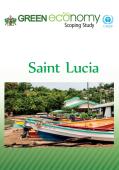Through in-depth case studies in Ucayali and San Martin, Peru, this document elaborated jointly by the Global Green Growth Institute (GGGI), the German Development Institute (DIE) and the International Centre for Research in Agroforestry (ICRAF) develops a typology for family producers based on quantitative and qualitative research. This typology includes land use, behavioral incentives and recommendations for the National Forest and Wildlife Plan that promote the full participation of family producers in the forest economy.
This document elaborated by Global Green Growth Institute (GGGI) and the German Development Institute (DIE) summarizes the findings of the biophysical analysis conducted by The Nature Conservancy (TNC) and explores its implications for the inclusion of ecosystem services in national policy.
This publication is also available in Spanish.
The topic of biodiversity loss has been the subject of a vast and growing scientific and economic literature. Species are estimated to be going extinct at rates 100 to 1000 times faster than in geological times. Globally, terrestrial biodiversity is projected to decrease by a further 10% by 2050. As with biodiversity, the planet has also experienced major losses in the services derived from ecosystems. During the last century, for example, the planet has lost 50% of its wetlands, 40% of its forests and 35% of its mangroves. Around 60% of global ecosystem services have been degraded in just 50 years. While there is a large and growing literature on the values associated with the services that ecosystems provide, much less has been done in analysing the causality in the other direction – i.e. in assessing the linkages from changes in ecosystem services to the functioning of the economy. This report contributes to an effort to identify environmental pressures under different structural and environmental policy assumptions and the associated damages that will result under different economic scenarios to 2050.
This report provides a comprehensive assessment of the economic consequences of outdoor air pollution in the coming decades, focusing on the impacts on mortality, morbidity, and changes in crop yields as caused by high concentrations of pollutants. Unless more stringent policies are adopted, findings point to a significant increase in global emissions and concentrations of air pollutants, with severe impacts on human health and the environment. The market impacts of outdoor air pollution are projected to lead to significant economic costs, which are illustrated at the regional and sectoral levels, and to substantial annual global welfare costs.

The report Green Economy Scoping Study for Saint Lucia couples an in-depth analysis of Saint Lucia’s agriculture and tourism sectors with a more general review of manufacturing, transport and construction, integrating the key elements of energy, water and waste management.
The study recommends policy reforms that can help speed up the transition to a green economy in Saint Lucia which, like many Small Island Developing States, is disproportionately vulnerable to the impacts of climate change.It also dentifies the most significant challenges for the tourism sector: the high input costs (primarily for energy, water and waste management), competing uses for environmentally sensitive areas accompanied by inadequate land use policies (particularly in coastal areas) as well as the need to diversify Saint Lucian tourism beyond “sun, sea and sand” vacations.
